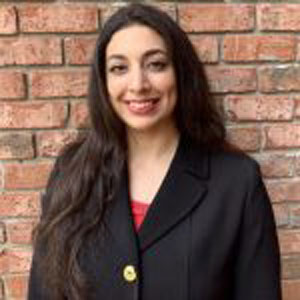Kacey Wyman, a Master of Social Work student at the University of North Carolina at Chapel Hill, has been selected as a 2021 Albert Schweitzer Fellow for North Carolina. She is among 25 graduate health professional students in the state chosen to participate in the prestigious program. These North Carolina students join more than 200 other 2021-22 Schweitzer Fellows working at program sites across the country.
The Schweitzer Fellowship is a one-year mentored fellowship program focusing on health-related community service and leadership development. Fellows are challenged to address social and environmental determinants of health, build capacity for improving the health and well-being of individuals and communities, contribute to social change and practice culturally sensitive and compassionate care, while developing leadership skills in real-life situations. Wyman, a second-year student in the 3-year MSW program in Chapel Hill, is the second social work student to be selected for the fellowship program. Recent MSW graduate Sara Shilling was named a Schweitzer Fellow in 2020.
For her project, Wyman is partnering with Serene Ahmad, a Schweitzer Fellow and student in UNC’s School of Medicine, to improve the quality of life for patients with autoimmune blistering disease. The disease is characterized as a group of disorders that cause the body’s immune system to attack the skin and mucous membranes, resulting in blistering lesions.

“Life with a disfiguring blistering disease can be filled with pain, itching, and difficulty in swallowing or breathing,” Ahmad said. “Patients often experience embarrassment, poor self-image and feelings of isolation. The disease is not often brought to the forefront of conversation like other medical diagnoses.”
Over the past year, UNC providers saw 250 patients from across the state for autoimmune blistering disease, an indication of how prevalent and underrepresented the disease is, Ahmad added.
“There is plenty of room to learn from our patients about their experiences,” she said.
For their project, the students will develop and host a series of educational webinars to help patients better understand their disease, including potential physical changes, expectations, and treatments, as well as effects on their mental health, Wyman explained.
“Being diagnosed with a physical chronic disease can be very stressful,” she said. “It’s something patients deal with every day, and there can be a lot of treatment fatigue and even depression and anxiety. So, we want to give a well-rounded approach to understanding the disease and all types of treatment.”
Wyman understands some of the challenges these patients often endure. Her own mother faced similar problems after being diagnosed with Lupus, an inflammatory disease in which the immune system attacks its own tissues.
“This issue is personal for me because of the struggles and barriers my own mom experienced,” she said. “Because my mom’s treatment lacked an integrative approach, her mental health was left unattended to or minimally addressed. Although a team of doctors were fully dedicated to her well-being, a mental health professional wasn’t always included with this team. In our project, we hope to encourage an integrative approach where physical health and mental health are both addressed in a person’s treatment by professionals in each field. We want to focus on the big picture.”
In addition to the webinars, the students will develop a person-centered survey to collect feedback from patients and establish monthly peer support group meetings, where patients can connect with each other and access further education and resources.
Overall, the program requires each fellow (or team of fellows) to design and carry out a health-related direct service project of 200 hours or more; prepare reports, an electronic poster and an opinion article about the project; attend educational retreats; and complete other requirements.
Schweitzer Fellowships have an intensive leadership component with fellows working closely with community and academic mentors during their fellowship year. These mentors often serve as role models for their peers, inspiring others to improve the health of those who experience barriers to care.
Wyman and Ahmad hope to begin recruiting participants for their project next month. The team plans to enroll at least 50 individuals from UNC Autoimmune Specialty Clinics.
Given that limited information exists on their topic,, the students are eager to expand the research.
“We’re really excited and looking forward to partnering with the community” Wyman said.

